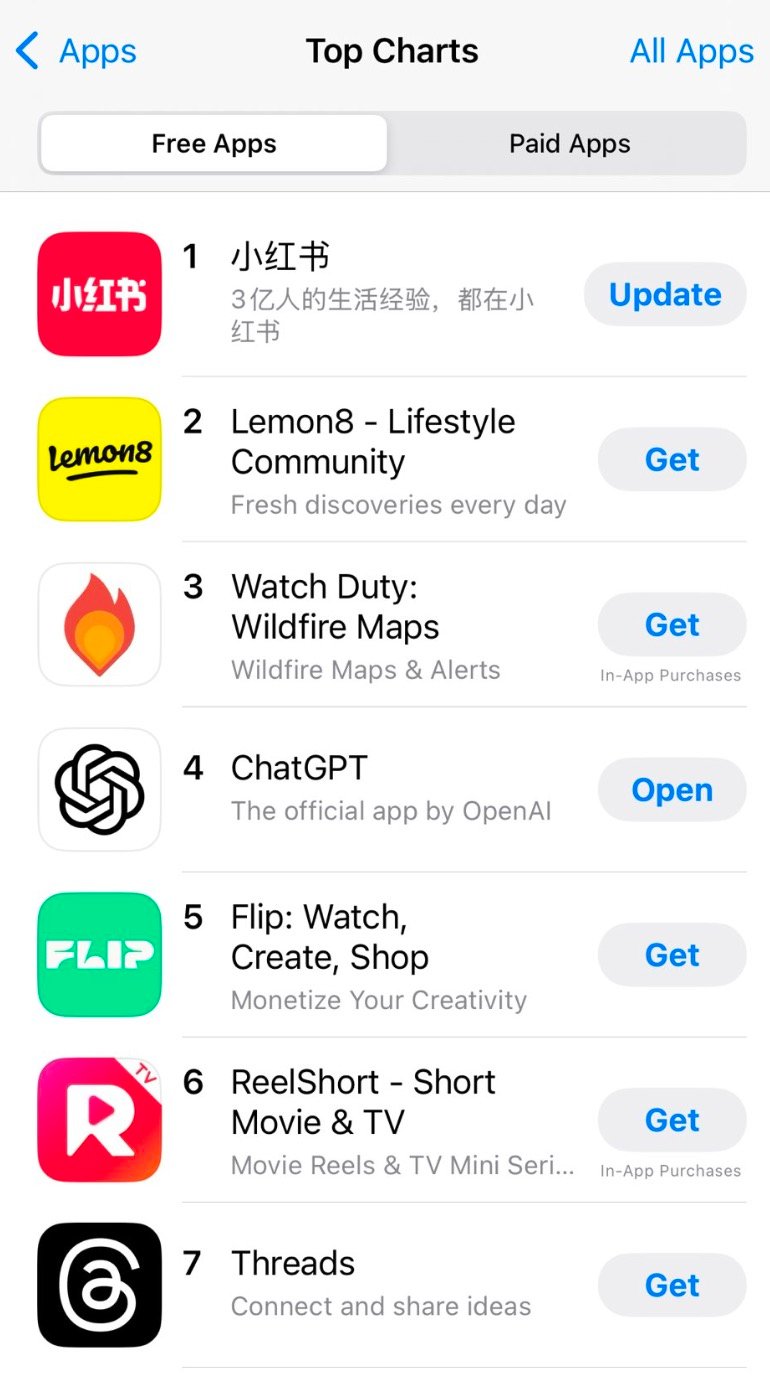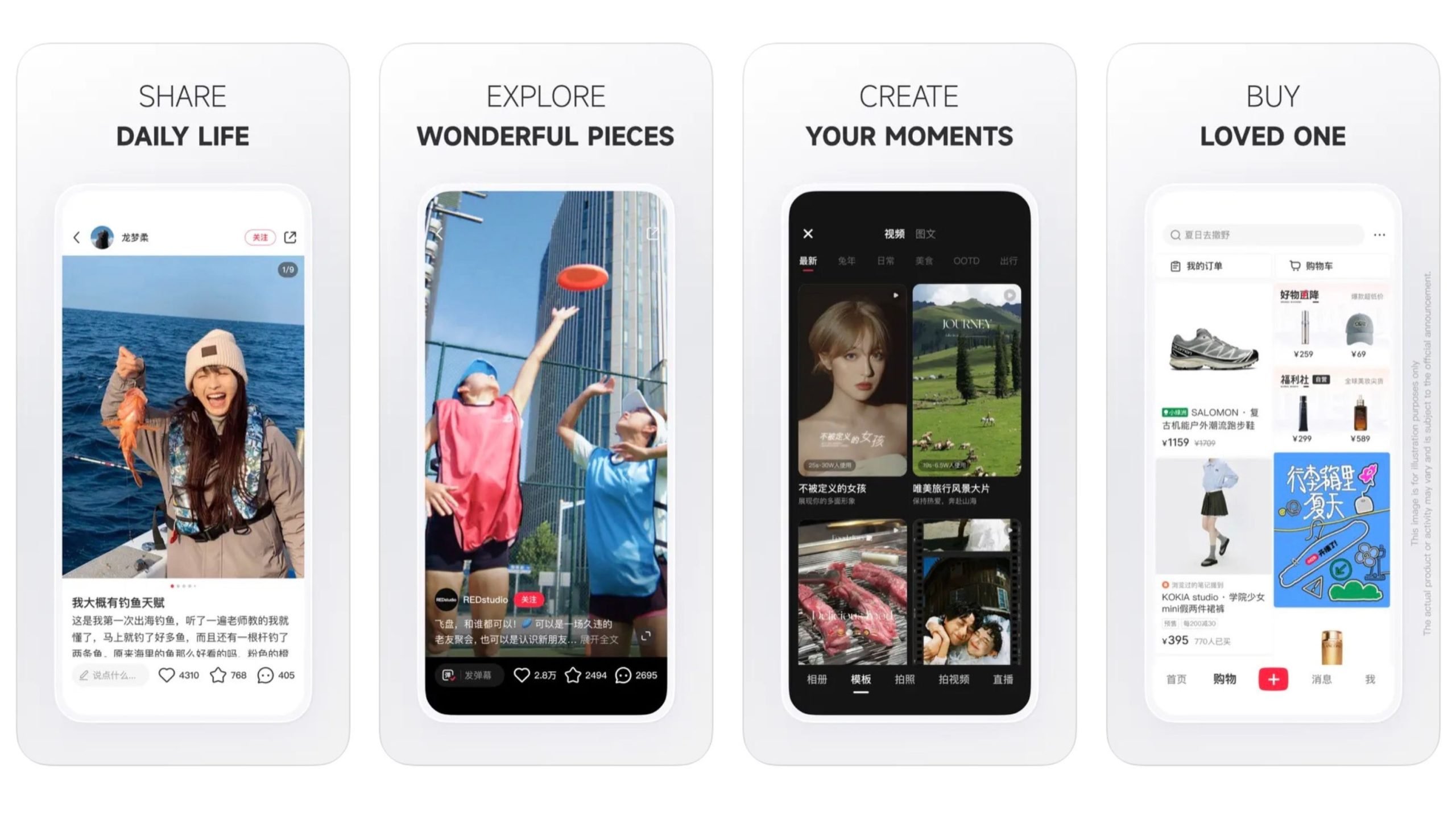As TikTok faces an imminent shutdown in the United States on January 19 due to ownership concerns — pending potential but unlikely intervention from the Supreme Court — another Chinese social media app is rapidly gaining traction among American users.
小红书, Xiaohongshu, known as “Little Red Book” or “REDNote” in English, has surged to the top of the US App Store’s free apps chart and currently holds the leading position in the Social Networking category for iPhone users.

This rise in popularity is partly fueled by TikTok creators who are urging their audiences to explore Xiaohongshu as an alternative platform.
Launched in 2013, Xiaohongshu appeals to creators seeking a substitute for TikTok due to its engaging design. Its integrated social shopping features further enhance user interaction.
Xiaohongshu boasts over 300 million monthly active users.
Reports last year suggested that Xiaohongshu was on track to exceed $1 billion in profits for 2024 with further growth in 2025. This impressive financial trajectory not only highlights the app’s vast potential but also underscores the new opportunities it offers content creators seeking diverse platforms.
However, Xiaohongshu’s future in the US remains uncertain. If its growth continues, it may attract heightened scrutiny from US regulators, particularly due to its Chinese origins and lack of domestic operations – less so than even TikTok.
The surge in Xiaohongshu’s popularity, especially amid the looming TikTok ban in the US, highlights an intriguing trend: American users are gravitating toward another Chinese app rather than defaulting to established platforms like Instagram or Facebook under Meta. This shift suggests a deeper user preference for innovative, niche social platforms that offer unique content experiences—something Meta’s products have struggled to replicate despite rolling out similar features like Instagram Reels.
This trend also underscores a paradox: while national security concerns drive efforts to ban TikTok, users are willingly adopting another Chinese app, raising questions about how much geopolitical tensions actually influence consumer behavior. It reveals that for many users, platform design and user experience outweigh concerns about data privacy or app origin, challenging the assumption that Western platforms like Meta are the natural fallback.










